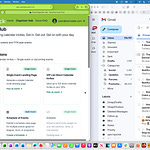1. What is the Calendar Invite Server (CIS) API, and what is its primary purpose?
The Calendar Invite Server (CIS) API is a suite of application programming interfaces designed to streamline and manage calendar-related operations. Its primary purpose is to facilitate the creation, management, and tracking of calendar invites, offering powerful tools for handling event invitations, monitoring attendance, and analyzing event data. It is built on RESTful principles and leverages AWS API Gateway and Lambda for request processing, ensuring efficiency, security, and scalability for enterprise users.
2. How is security and authentication handled within the CIS API?
Security and authentication within the CIS API are robustly managed through several AWS-integrated mechanisms. Some APIs require an API key for access, ensuring secure usage and preventing unauthorized interactions. Access permissions are precisely controlled using AWS IAM (Identity and Access Management) roles, which restrict data exposure to only authorized entities. Furthermore, authentication itself is handled through AWS API Gateway security policies, providing a comprehensive and secure framework for API access.
3. What are the main functional categories of APIs within the CIS, and what do they generally cover?
The CIS API is structured into several functional categories to facilitate effective organization of its operations. These include:
Event API: Handles all event-related operations, including retrieving event summaries, managing invitations, generating attendee reports, and providing event-level statistics.
Organizer API: Focuses on managing event organizers and their associated data, including fetching lists of events handled by a specific organizer and providing analytics on organizer-level events.
System API: Provides administrative access to CIS-wide event data, allowing for the retrieval of all events across the system and system-wide statistics.
Statistics API: Offers comprehensive statistical insights across various levels, including event-specific, organizer-level, and system-wide reports.
Order API (Shopify Integration): Specifically designed to process Shopify orders for CIS usage, indicating integration with e-commerce platforms.
4. What technologies underpin the CIS API's architecture?
The CIS API's architecture heavily relies on Amazon Web Services (AWS) for its functionality and scalability. It utilizes AWS API Gateway for processing API requests and AWS Lambda for executing the backend code, eliminating the need for provisioning or managing servers. Additionally, some direct AWS integrations, particularly for DynamoDB queries, are employed to access and manage data efficiently. This serverless and cloud-native approach contributes to its efficiency, security, and scalability.
5. What are common request and response formats for CIS APIs, and what is an example of a statistic it can provide?
All CIS API requests (where applicable) use JSON for their request bodies, and all API responses are also in JSON format.
This standardized approach ensures easy parsing and integration. An example of a statistic it can provide, as demonstrated by the GET /event/{uid}/statistics endpoint, includes:
{
"event_id": "12345",
"attendee_count": 150,
"rsvp_confirmed": 120,
"rsvp_declined": 10,
"rsvp_pending": 20
}
This example displays event-specific data, including the total number of attendees and the breakdown of RSVP statuses (confirmed, declined, and pending).
6. How does the CIS API handle errors, and what are some common HTTP status codes it returns?
The CIS API follows standard HTTP status codes for error handling, providing clear indications of the request's outcome. Standard status codes include:
200 OK: Indicates that the request was successful.
400 Bad Request: Signifies that the request contained invalid input parameters.
401 Unauthorized: Occurs when the API key is missing or invalid, preventing access.
404 Not Found: Means that the requested resource does not exist.
500 Internal Server Error: Denotes an unexpected issue on the server side.
7. Can the CIS API provide both current and legacy event data for organizers?
Yes, the Organizer API within the CIS API suite is capable of providing both current and legacy event data for organizers.
The GET /organizer/{organizer}/events endpoint fetches a list of current events managed by a specific organizer.
In addition, the GET /shadow/organizer/{organizer}/events endpoint is specifically designed to retrieve legacy event data, ensuring that historical information remains accessible and manageable.
8. Beyond event creation and management, what other capabilities does the CIS API offer, especially concerning reporting and insights?
The CIS API extends beyond basic event creation and management to offer robust capabilities in reporting and statistical insights. It can generate various reports, such as event attendee reports (GET /event/{uid}/report) and sanitized attendee lists (GET /event/{uid}/attendees).
Furthermore, it provides detailed statistical data across different levels: event-specific (GET /event/{uid}/statistics), organizer-level (GET /shadow/organizer/{organizer}/statistics), and system-wide (GET /system/statistics). These features enable users to track attendance effectively, analyze event performance, and gain valuable insights into their calendar-related activities.
Video













